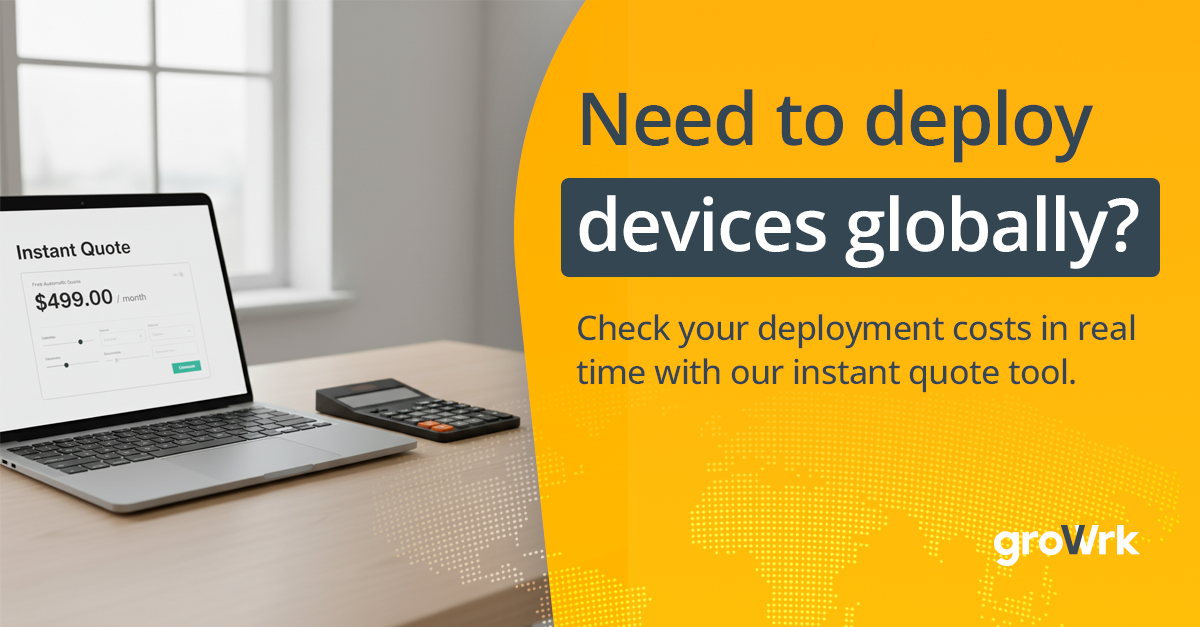How to send IT equipment to Nigeria
Need to send IT equipment to remote teams in Nigeria? GroWrk simplifies IT asset logistics across borders, ensuring seamless delivery of laptops, servers, and essential devices. We handle customs, compliance, and regulations, making your shipments hassle-free.
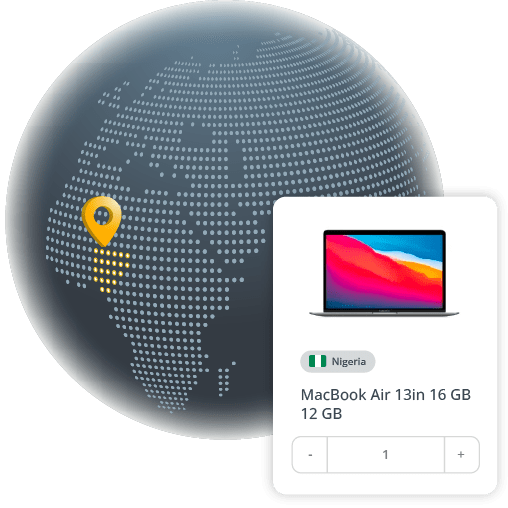
At a glance
Nigeria’s IT sector is rapidly expanding, driven by digital transformation, increased internet penetration, and a thriving startup ecosystem. The country is a key player in Africa’s tech landscape, with a growing focus on fintech, e-commerce, and software development.
|
CURRENCY Nigerian Naira (NGN) |
OFFICIAL LANGUAGE English |
TIME ZONE GMT+01:00 West Africa Time (WAT) (No daylight saving time) |
|
CUSTOMS DUTY ON ELECTRONICS 5-20% Typically 5-20% customs duties and 7.5% VAT. An additional administrative charge of 1% may apply. |
SHIPPING LEAD TIME 5-14 days (depending on shipping method and customs clearance) |
IT OUTSOURCING MARKET Growing rapidly, driven by demand for software development and cloud services. Nigerian IT outsourcing market is expected to reach US $992.61m by the year 2025. |
Overview of IT operations in Nigeria

Growing IT sector: Nigeria’s IT industry is a major contributor to its economy, with strong growth in fintech, artificial intelligence, and cloud computing. The sector is expected to see significant investment and expansion and is expected to maintain a consistent annual growth rate of 12.03% from 2025 to 2029.
Developing IT infrastructure: Nigeria is improving its broadband network, expanding data centers, and increasing access to high-speed internet to support businesses and digital services.
Skilled workforce: With a young, tech-savvy population, Nigeria has a large pool of skilled IT professionals, making it a leading destination for outsourcing and remote tech talent.
Regulatory compliance: The Nigerian Data Protection Regulation (NDPR) governs data security and privacy, ensuring compliance for businesses handling personal and corporate data.
Thriving tech ecosystem: Cities like Lagos and Abuja are home to vibrant tech hubs, incubators, and startup accelerators, driving innovation and entrepreneurship across various industries.
Shipping IT equipment to Nigeria: What you need to know
| Customs regulations |
Nigeria enforces strict customs regulations for imported IT equipment. All shipments must comply with the Nigeria Customs Service (NCS) guidelines, ensuring proper classification, accurate declarations, and payment of applicable duties and taxes.
|
| Duties and taxes |
|
| Required documentation |
|
| Customs clearance process |
|
| New vs. Used equipment |
|
| Penalties or fines for non-compliance |
|
Checklist for sending laptops to Nigeria
When shipping laptops to Nigeria, it’s important to follow a few best practices to ensure the process goes smoothly, and your equipment arrives safely and on time. Here are some helpful shipping tips:
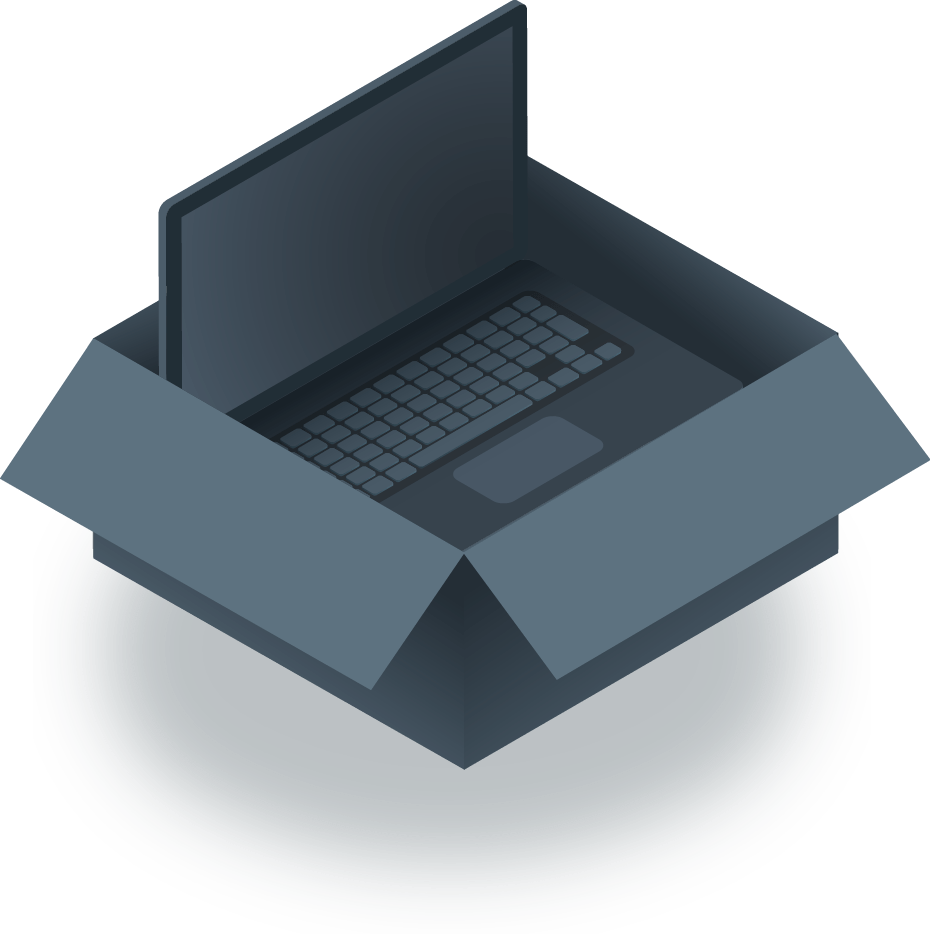
Select trusted couriers: Choose reliable couriers such as GroWrk, DHL, UPS, FedEx, or NIPOST (Nigerian Postal Service) for international shipping. These carriers offer tracking services and have experience handling Nigerian customs procedures.
Check service levels: Select the appropriate shipping option based on urgency. Express shipping (3-6 days) for high-priority deliveries. Standard shipping (7-14 days) for cost-effective options.
Use high-quality packaging: Secure laptops with sturdy, padded boxes and protective materials like bubble wrap, foam inserts, or air cushions to prevent damage during transit.
Disassemble where possible: If shipping accessories like chargers, docking stations, or monitors, package them separately to prevent damage. Remove detachable components if applicable.
Label clearly: Ensure the recipient’s name, address, and contact details are correctly labeled. Mark the package as "fragile" to encourage careful handling.
Accurate product descriptions: On the commercial invoice, provide a detailed and accurate description of the laptop, including its brand, model, and serial number. Inaccurate descriptions may cause customs delays.
Value declaration: Declare the correct value of the laptop to avoid under- or over-declaring, which could lead to customs inspections or fines. The declared value determines any applicable duties and taxes.
Customs declarations: All international shipments require customs clearance. Include: Nigerian Customs Declaration (Single Goods Declaration - SGD), commercial invoice, and packing list
Proof of origin: If applicable, include a certificate of origin to benefit from preferential trade agreements, such as ECOWAS trade concessions, which may reduce duties.
Understand import duties & taxes: Laptops are generally exempt from customs duties under Nigeria’s Harmonized System codes. However, they are subject to 7.5% VAT and customs administrative charges, including port handling and inspection fees. Expect total import charges to range from 10–20% of the declared value, depending on assessment.
Pre-pay duties and taxes: Some couriers allow for pre-paid duties and taxes to simplify customs clearance and prevent the recipient from facing unexpected charges upon arrival.
Protect against loss or damage: Consider purchasing shipping insurance for high-value laptops to protect against loss, theft, or damage during transit.
Compliance with Nigerian regulations: Ensure compliance with Nigerian Communications Commission (NCC) and Standards Organisation of Nigeria (SON) if the device has wireless components. Large commercial imports may require a SONCAP certificate.
Use tracking tools: Major couriers provide real-time tracking—monitor shipments closely to anticipate customs clearance updates and delivery progress.
Stay in touch with the recipient: Notify the recipient about the expected delivery timeline, tracking updates, and any customs-related requirements to avoid delays.
Expect weather and seasonal delays: Heavy rains during Nigeria’s wet season, as well as holiday congestion (e.g., Christmas, New Year, Eid) can affect shipping timelines. Plan accordingly for high-priority deliveries.
Nigerian domestic delivery options: For final delivery, consider working with NIPOST, GIG Logistics, CourierPlus, or Kwik Delivery to ensure smooth handoff and communication within Nigeria.
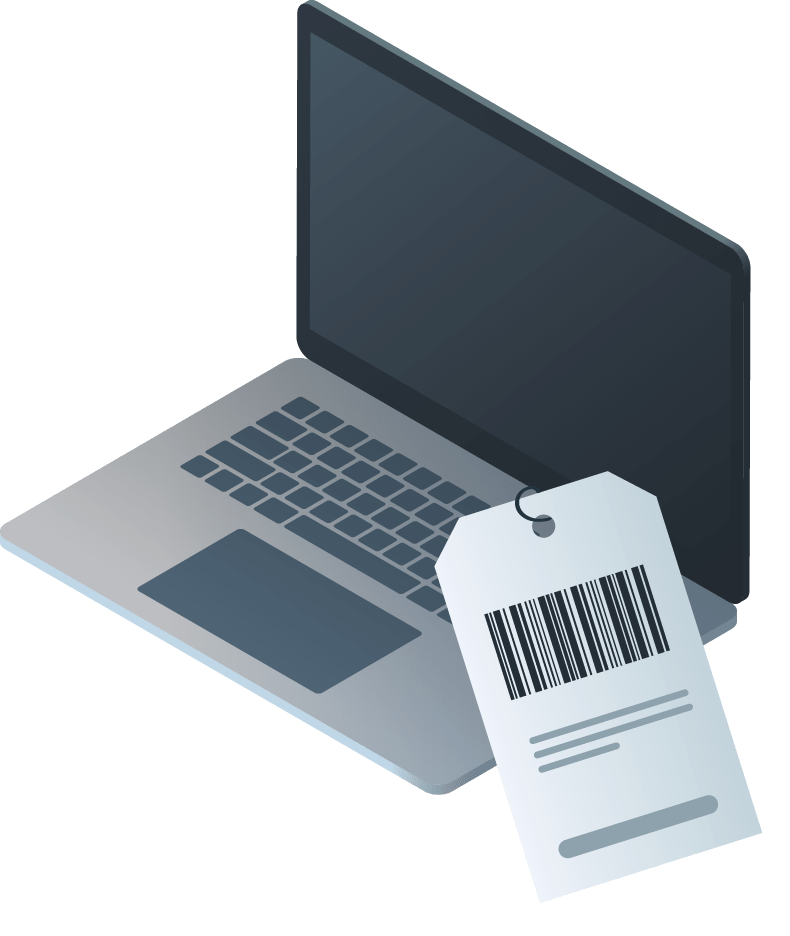
Average cost of IT Equipment in Nigeria
Laptops (Business Grade):
- Mid-range: $350 – $700
- High-end: $700 – $1,500+
High-end models such as Apple MacBook Pro, Dell XPS, and Lenovo ThinkPad are priced on the higher end.
Monitors (Business Grade):
- Standard: $100 – $250
- Ultrawide/4K: $300 – $800+
Monitors from trusted brands like Dell, Samsung, and LG typically range within these prices, with 4K or ultrawide models costing more.
Desktops (Business Grade):
- Standard Desktop PC: $300 – $700
- Workstation Desktop (for high-performance tasks): $700 – $1,500+
Prices depend on the brand and specifications, with options from HP, Lenovo, and Apple among the most common.
Printers (Laser):
- Standard Office Printers: $100 – $250
- High-Volume Printers: $250 – $1,000+
Leading brands such as HP, Canon, and Brother offer a wide range of models for office environments.
Public holidays & IT work hours to plan your shipment
Key public holidays in Nigeria:
- New Year’s Day – January 1
- Workers’ Day – May 1
- Democracy Day – June 12
- Independence Day – October 1
- Christmas Day – December 25
- Boxing Day – December 26
Variable Religious Holidays: (Dates vary based on the Islamic and Christian calendars)
Typical work hours for IT professionals
- Standard workweek:
- The typical workweek is 40-45 hours, usually from 8:00 AM to 5:00 PM, Monday to Friday.
- Some IT companies offer flexible hours, allowing employees to start between 7:30 AM and 9:00 AM and finish between 4:30 PM and 6:00 PM.
- Lunch breaks usually last 30 minutes to 1 hour.
- Overtime regulations:
- Overtime is regulated under Nigeria’s Labour Act, and employees should not work more than 12 additional hours per week.
- Weekday overtime is typically paid at 1.5 times the hourly wage.
- Weekend and public holiday overtime is usually double pay or compensated with an additional day off.
What to consider when retrieving IT equipment from employees in Nigeria
| Local delivery and logistics services |
|
| Inventory management |
|
| Logistics challenges for remote locations |
|
| Equipment agreement with employees |
|
How to dispose of IT equipment in Nigeria
E-Waste Recycling:
- Registered e-waste handlers: Nigeria’s National Environmental Standards and Regulations Enforcement Agency (NESREA) mandates proper disposal of electronic waste. Use certified recyclers to ensure hazardous materials like batteries, lead, and mercury are managed safely.
- Designated e-waste centers: Drop off old IT devices at NESREA-approved recycling centers or local collection points for safe disposal.
Data Destruction:
- Wipe data completely: Use certified data erasure software to remove all sensitive information before disposing of IT equipment.
- Physical destruction: If data security is a concern, consider shredding or degaussing hard drives and storage devices to prevent unauthorized access.
Repurposing or Donating:
- Donate to schools & NGOs: Working computers and IT devices can be donated to educational institutions and non-profits to support digital learning.
- Internal reuse: Repurpose older devices for secondary tasks within a business before considering disposal.
Manufacturer Recycling Programs
- Many tech brands like HP, Dell, and Apple operate take-back programs in Nigeria, allowing businesses to return outdated IT equipment for proper recycling.
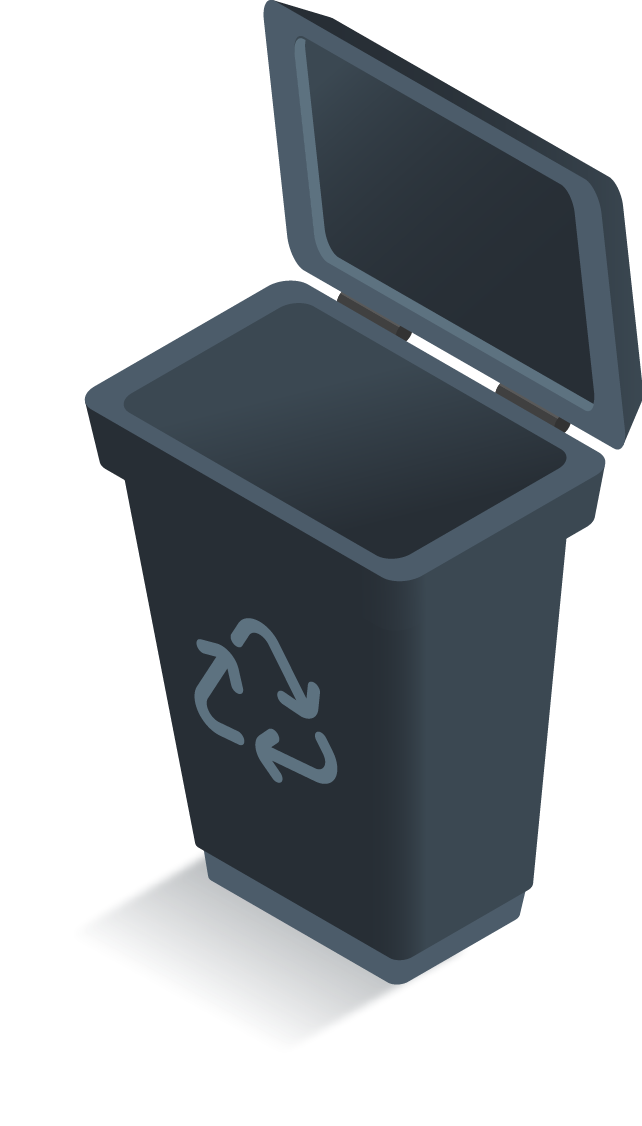
Local IT Outsourcing Solutions in Nigeria
You can streamline your IT logistics and asset management with GroWrk’s comprehensive global solution. Whether it’s shipping equipment or managing IT assets across multiple regions, GroWrk helps you stay compliant and efficient, every step of the way. Here’s why GroWrk is the ideal partner for managing your IT assets in Nigeria:

| 1. Wide global coverage |
GroWrk operates in over 150 countries, including Nigeria, making IT equipment deployment smooth and hassle-free. Our knowledge of Nigerian tech regulations ensures businesses remain compliant while optimizing efficiency. |
| 2. End-to-end asset management |
From sourcing and setup to maintenance and disposal, GroWrk handles the full lifecycle of IT assets. Businesses can focus on their core operations while we take care of their tech needs. |
| 3. Intuitive platform for easy deployment |
With a centralized platform, businesses can track, monitor, and manage IT assets effortlessly. Real-time insights help reduce administrative work and boost productivity. |
| 4. Smooth delivery and equipment retrieval |
GroWrk ensures fast and secure delivery of IT equipment across Nigeria, including hard-to-reach areas. We also handle retrieval from departing employees, making the process cost-effective and stress-free. |
| 5. Compliance with Nigerian import regulations |
We simplify customs clearance, VAT processing, and IT compliance with Nigerian authorities like the Nigerian Communications Commission (NCC). Our expertise prevents delays and keeps your IT supply chain running smoothly. |
| 6. Efficient repairs and maintenance |
Minimizing downtime is crucial for business success. Our expert technicians provide routine servicing and urgent repairs to keep IT equipment in top condition. |
| 7. 24/7 Support for peace of mind |
GroWrk’s support team is available round the clock to assist with IT asset management, troubleshooting, and logistics. Nigerian businesses can rely on expert help anytime, anywhere. |
Procure, configure, and deploy your IT devices from one platform


